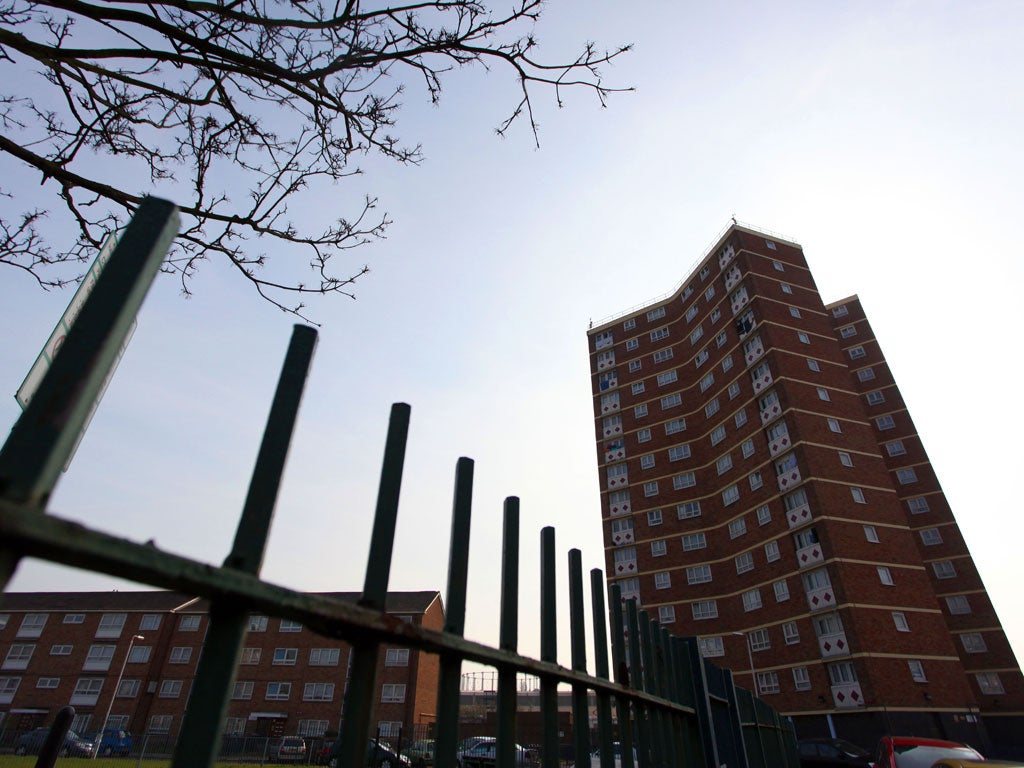Philip Hensher: We turn up our music to cover the screams

The horrible thing about the murder of 15-year-old Kristy Bamu is that so many people were aware of it as it took its four-day course. Kristy's sister, Magalie Bamu, and her partner, Eric Bikubi, lived in a flat on the eighth floor. Kristy and two of his sisters were visiting from Paris at Christmas, 2010. After a few days, Bikubi decided that they were possessed by devils, and carried out a brutal improvised "exorcism", at the end of which Kristy was left pleading to be allowed to die. His body bore the marks of 101 separate injuries.
There was a good deal of noise. A neighbour told the court: "I was aware of a lot of noise coming from the flat... There were a lot of people shouting, and the voices sounded angry. The noise was so loud that I shut the window." A council plumber came to the flat 20 minutes before Kristy died, and said he only heard "splashing" from the bathroom – photographs of the flat show blood everywhere. Tragically, even Kristy's parents knew what was going on – Bikubi told them that Kristy was possessed, and that he would kill him; Kristy pleaded to be rescued, and he was dead by the time they arrived.
The plumber who heard only splashing, and the neighbour who was so disturbed by the noise of a child being beaten to death that he went as far as to close his window are, surely, the contemporary equivalents of the neighbours of Kitty Genovese. Kitty Genovese was raped and murdered in Queens, New York, in March 1964; her murder was witnessed by a dozen people, most of whom did nothing. The case was given some notoriety by coverage in the immediate aftermath, which raised the number of inactive witnesses to 38, sometimes claiming that people turned up their radios to cover the death-cries of the victim.
The kind of beliefs which led to the murder of Kristy Bamu are widespread and becoming more popular. Pentecostal churches, which often encourage belief in witchcraft and specialise in highly theatrical exorcisms, are one of the fastest-growing forms of religion in the country. There are currently about 4,000, and 15 per cent of those have opened since 2005. There is an increase in belief in witchcraft in Africa, where it often provides a useful source of income for self-appointed clergymen willing to exorcise children of evil spirits for a fee. These evil spirits may manifest themselves as slowness in reading, the borrowing of a pen without permission, or, as in the Bamu case, bedwetting. The exorcism will be violent in form.
Sensing that these beliefs are specifically African, as are the cures, onlookers may have a tendency to walk away, to shut the window, to disregard the blood spilt all over a stranger's flat, even. These are not our ways: these are not our concerns. But at what point do you intervene?
A mother calling her small child a devil in public? Smacking her in the supermarket? When the sounds of screams and beating come from next door? Signs of blood and bruising? There is a point on this scale when almost all of us would unhesitatingly intervene, but it may be that the point is retarded by a quite unrelated concern: the concern to be culturally sensitive, to recognise that other people have their own ways. I saw a woman with an African accent beating her child in a shop once, and did and said nothing; I made the wrong excuse to myself that, after all, her culture was based on strictness in the way that mine wasn't. That was so. And yet the child was still being beaten.
There are plenty of people pressing for change. Some African politicians have succeeded in creating criminal offences of labelling children as witches. The excellent Africans Unite Against Child Abuse (Afruca), a London-based campaign, has called for similar legal sanctions here. Tower Hamlets' African families service is often cited as a model of good practice here in a very tricky area. Bob Pull, of the Child Protection Advisory Service, shows some of the problems when he refers to a case in which "a mother was accusing her 15-year-old daughter of witchcraft and keeping her out of school. Social services were struggling to help because the mother thought they [the practitioners] were sent by the devil".
It is possible for institutions to take action here, but in the end it's down to us as individuals to be responsible. Awareness of a cultural gap perhaps stops, or slows intervention, when beatings and screamings are heard next door. There are too many cases of abuse in the name of exorcism. There were an estimated 2,283 honour-related crimes in the UK alone in 2010, many by people calling themselves Muslims. How many people saw something of that, and decided to turn their back, because what Asians did with their womenfolk was, it was presumed, none of anyone else's business?
Everyone needs a clearer sense of the status of these acts within individual cultures. A Muslim who kills his daughter is not a good Muslim, but an ignorant lunatic. Bikubi's actions showed him to be mentally deranged and, not, as his neighbours may have thought, just another noisy and violent African. What we need is much more personal knowledge about the culture of the people living next door to us, and more confidence to know when things are going very seriously wrong.

Join our commenting forum
Join thought-provoking conversations, follow other Independent readers and see their replies